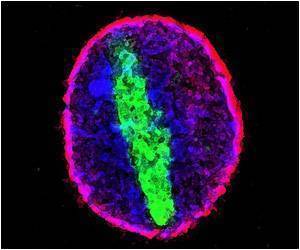Our skin plays host to millions of beneficial and potentially disease-causing microbes. However, whether our immune system influences these microbial communities to prevent disease is unknown.

The human body contains many microbes, some of which are necessary for healthy bodily functions including digestion. Others, such as some microbes living on our skin, may be pathogenic. Previous studies investigated how these microbes educate and shape the human immune system. There is little known, however, if the immune system influences the types of microbes that live on the skin and thus potentially prevents disease. "In addition to questions about how microbes affect the human host, there is an interest in understanding how the human host affects the microbes that make our skin their home," said Heidi Kong of the National Cancer Institute (NCI) and co-senior author of the study.
To study this, the authors enlisted patients with reduced immune function as a result of rare genetic defects. Despite the diversity in disease-causing mutations in the patients, all patients shared an eczema-like skin condition. The scientists identified the patients' skin microbes by sequencing microbial DNA from skin swabs. The immunodeficient patients had types of bacteria and fungi on their skin not found on healthy individuals, suggesting the patients' skin was more permissive to microbe growth. "Our findings suggest that the human body, including our immune systems, constrains and potentially selects which bacteria and fungi can inhabit skin," said Kong.
Interestingly, the skin sites specifically prone to disease showed significant differences in microbial diversity, or the number of different types of microbes present, in immundeficient patients. The skin at the elbow crease, for instance, had fewer types of microbes than found on healthy individuals, while skin behind the ear had more types of microbes. The authors suggest that an imbalance in microbial diversity at a given site may contribute to disease. In addition, "the communities of bacteria and fungi on the skin of primary immunodeficiency patients are more likely to change over time," said co-senior author Julie Segre, of the National Human Genome Research Institute (NHGRI).
Immunodeficient patients overall had much more similar microbial communities across their entire bodies, which are usually distinct in healthy individuals. The authors suggest correcting the diversity of microbes on the skin, not just targeting pathogenic ones, may aid in the treatment of disease.
Although the individuals in this study have rare genetic disorders, this research may have implications for patients with temporary impairments in immune function, such as cancer patients and transplant recipients, and may inform the use of preventative antibiotics that are routinely given to these patients.
 MEDINDIA
MEDINDIA




 Email
Email










